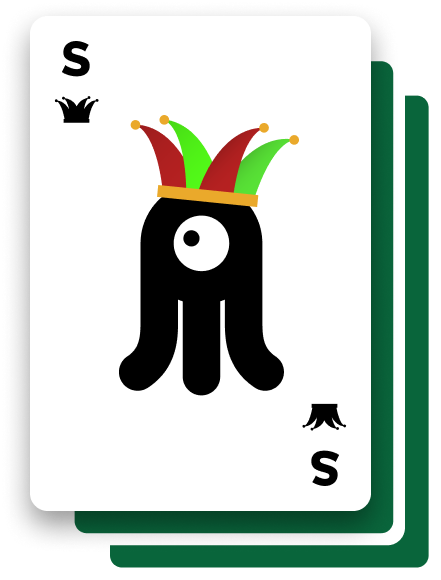Frequently asked
questions
What's the Shuffle Token?
The Shuffle Token is an ERC-20 token that "shuffles" itself on each transfer, 1% of the transferred amount it's received by a random holder, picked from the top 512 holders.
What's the burning?
An additional 1% of tokens are taken on each transaction; those are destroyed, reducing the total supply on each token transfer.
Is SHUF an investment?
NO, SHUF IS A GAME, sorry for yelling, but this is important. Shuf is a meme-coin and a game, it has value almost like any other token, but it shouldn't be considered a way of investing money, it's an experiment.
What's the transaction fee?
The total transaction fee of a SHUF transfer operation is 2%, half of it is destroyed, and the other half is sent to a random holder. Transactions additionally have to pay for gas, just like any other Ethereum transaction.
What's the Heap?
The Heap is the data structure used to track the 512 top holders of the token; you may enter or leave the Heap depending on how much balance you have.
Why the top 512 holders?
We believe it to be more interesting this way; picking an address between all the token holders would generate incentives to maintain hundred of wallets with the minimal amount of SHUF possible.
Instead, the 512 limit generates more complex incentives, including incentives for making more transfers.
How is the random winner selected?
The address of the sender is used as the seed of a random number generator, and from that unique generator, the index of the winner is obtained.
A series of mechanisms are in place to limit the ability of the sender to manipulate who is going to become the winner, making the token shuffling as fair as possible.
How was the token distributed?
Any user who had ETH at block 8113050 was eligible for 150 SHUF tokens for every ETH held at that time, with a maximum assigned amount of 1500 SHUF tokens.
Users were able to manually claim their share of SHUF until the limit of 1 million SHUF was reached.
Was there an airdrop?
Sort of, we initially claimed the tokens for some random addresses at the beginning of the project: this was our mechanism of choice to kickstart the project.
Some small community-driven airdrops are still ongoing.
How many SHUF tokens are there?
The total amount of SHUF was one million and has already decreased.
Why my transaction fails with "Out of gas"?
Because SHUF is not your regular ERC20 token, it requires aditional gas-limit to distribute the reward and update the Heap, try increasing the gas-limit to 650000.
What about increasing the gas price?
Increasing or decreasing the gas-price has no relation with the "Out of gas" errors, this is true for shuffle and almost all other Ethereum projects. It would help if you increased the gas-limit.
Why it uses that much gas?
The token needs the gas to re-calculate the top 512 holders and to pay for the rewards.
There is also an aditional gas cost when SHUF is transferred to an address for the first time because a contract for storing each balance has to be deployed.
When <Random popular exchange>?
We don't want to artificially inflate the price of the token by listing it on popular exchanges, the token is mostly traded in Uniswap in a 100% decentralized manner, and we don't intend to pay for any other exchange.
Is SHUF an ERC20 token?
Yes and no, it is compliant with the ERC20 interface and will work with most of the wallets, but the behavior of SHUF differs from the other tokens; because the receiver doesn't receive the full amount transferred by the sender.
So... can I use SHUF as an ERC20 token?
Yes! Mostly... some custom contracts may break trying to handle SHUF, but we made sure to support the most used ones (Uniswap, Forkdelta, etc.). If you want to know if your contract is SHUF compatible, ask in our group!
I want to use a contract with SHUF, but reverts, can you help me?
Yes! (Depending on the contract), but we can disable the shuffling and burning on some contracts to make them work, as long as it makes sense and doesn't break the game.
Disable the shuffling?
We can add contracts to a whitelist, and if a contract is in this whitelist, no shuffling occurs when tokens are sent to or from this contract.
We added this feature to support the most popular dapps; for example, Uniswap is whitelisted on token sells, because otherwise, Uniswap breaks because of the burning and shuffling.
What goes to the developer?
6% of the token emission, and we are subject to the same fees as every other user; also, we don't have any means to emit or manipulate the circulating tokens.
Is the project open source?
Of course! We even have copycats; you can find all the code in our Github repository.
When moon?
The next full moon is going to be on 1/31/2026, but that has absolutely nothing to do with this token. 🌝
